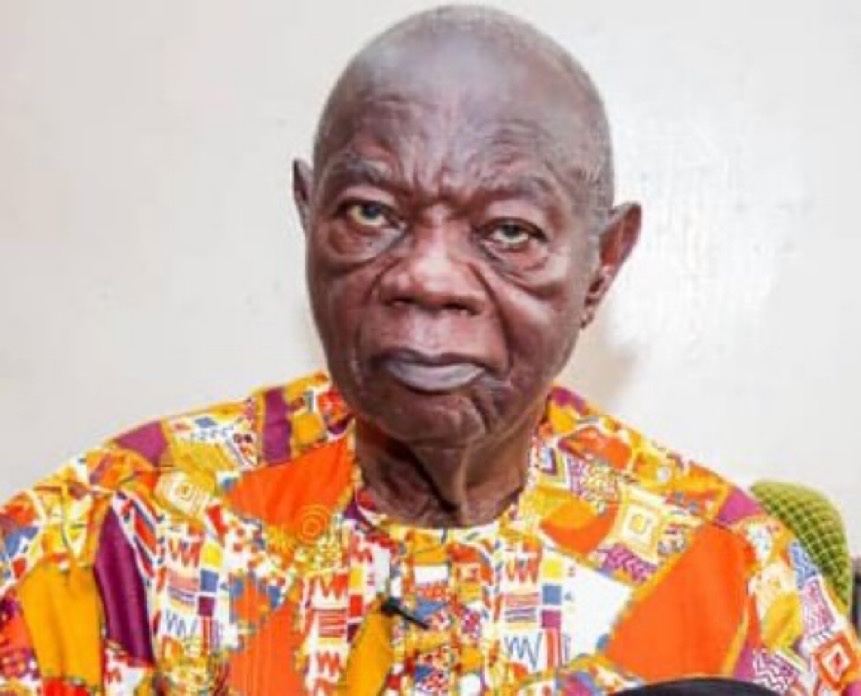The Enugu State Government, under the leadership of Governor Peter Mbah, has announced plans to immortalize Chief Mike Ejeagha, the revered highlife musician and Igbo folklorist, who passed away on June 6, 2025, at the age of 95. Ejeagha, celebrated for his timeless contributions to Igbo culture through songs like “Gwo Gwo Gwo Ngwo” and “Ka Esi Le Onye Isi Oche,” succumbed to prostate cancer at the 32 Garrison Hospital in Enugu after a prolonged illness. The government’s commitment reflects Ejeagha’s profound impact on Nigerian music and cultural heritage, ensuring his legacy endures for future generations.
Ejeagha’s career, spanning over six decades, established him as a cultural icon whose music transcended regional boundaries. Born in 1930, he began performing at 18, blending Igbo folklore with highlife rhythms to create a unique storytelling style. His songs, rich with moral lessons and humor, earned him the title “Gentleman” and a global following, particularly after “Gwo Gwo Gwo Ngwo” inspired the viral dance challenge popularized by comedian Brain Jotter in 2024.
Governor Mbah described Ejeagha’s death as a monumental loss, not only to Enugu State but to Nigeria and the global music community. In a statement issued on June 6, 2025, Mbah praised Ejeagha as a “cultural ambassador” whose work preserved Igbo traditions while resonating universally. The governor highlighted Ejeagha’s ability to weave intricate narratives into his music, making him a bridge between generations and cultures.
The pledge to immortalize Ejeagha builds on prior efforts by the Enugu State Government to honor him during his lifetime. In 2024, the government renamed Obinagu Road in Abakpa Nike, where Ejeagha resided, to Mike Ejeagha Road, and reconstructed it to reflect his stature. This gesture was part of a broader initiative to celebrate living legends, a move Mbah noted as a testament to Ejeagha’s enduring influence.
Details of the immortalization plans remain forthcoming, but sources suggest they may include a state-funded monument, a cultural festival or a dedicated music archive to preserve Ejeagha’s works. The government has also committed to supporting Ejeagha’s family, ensuring their welfare as part of honoring his legacy. These efforts align with Mbah’s administration’s focus on promoting Enugu’s cultural heritage as a driver of tourism and economic growth.
Ejeagha’s influence extended beyond music, as he mentored younger artists and inspired a revival of interest in Igbo folklore. His home in Enugu served as a cultural hub, where he welcomed visitors, including Brain Jotter, who paid tribute to him during the 2024 viral dance challenge. Ejeagha’s humility and dedication to his craft earned him admiration from fans and dignitaries alike.
The musician’s health had deteriorated in recent years, with prostate cancer confining him to his Enugu residence before his hospitalization. Despite his illness, Ejeagha remained a symbol of resilience, with his music continuing to inspire new generations. His death prompted an outpouring of tributes on platforms like X, where fans and artists celebrated his contributions to Nigerian culture.
Enugu State’s commitment to immortalizing Ejeagha underscores the government’s recognition of cultural icons as vital to national identity. Previous initiatives, such as the 2024 renovation of Ejeagha’s residence, demonstrate a proactive approach to honoring artists. The government’s plans are expected to further elevate Ejeagha’s legacy, ensuring his stories and songs remain a cornerstone of Igbo heritage.
Public response to the announcement has been overwhelmingly positive, with many calling for a national holiday or a dedicated cultural center in Ejeagha’s name. Scholars and cultural advocates have urged the government to digitize Ejeagha’s discography to preserve it for academic and public access. These suggestions reflect the widespread desire to see Ejeagha’s contributions celebrated on a grand scale.
As Enugu State moves forward with its plans, the focus will likely be on creating a lasting tribute that captures Ejeagha’s essence as a storyteller and musician. His ability to blend entertainment with education through songs like “Akuko N’egwu” has left an indelible mark on Nigerian music. The government’s efforts will aim to ensure that future generations can access and appreciate his work.
The loss of Ejeagha marks the end of an era for highlife music, but his legacy is poised to endure through the government’s initiatives. By immortalizing him, Enugu State not only honors a musical pioneer but also reinforces the importance of cultural preservation in a rapidly modernizing world. The coming months will reveal the full scope of these plans, as the state works to cement Ejeagha’s place in history.




